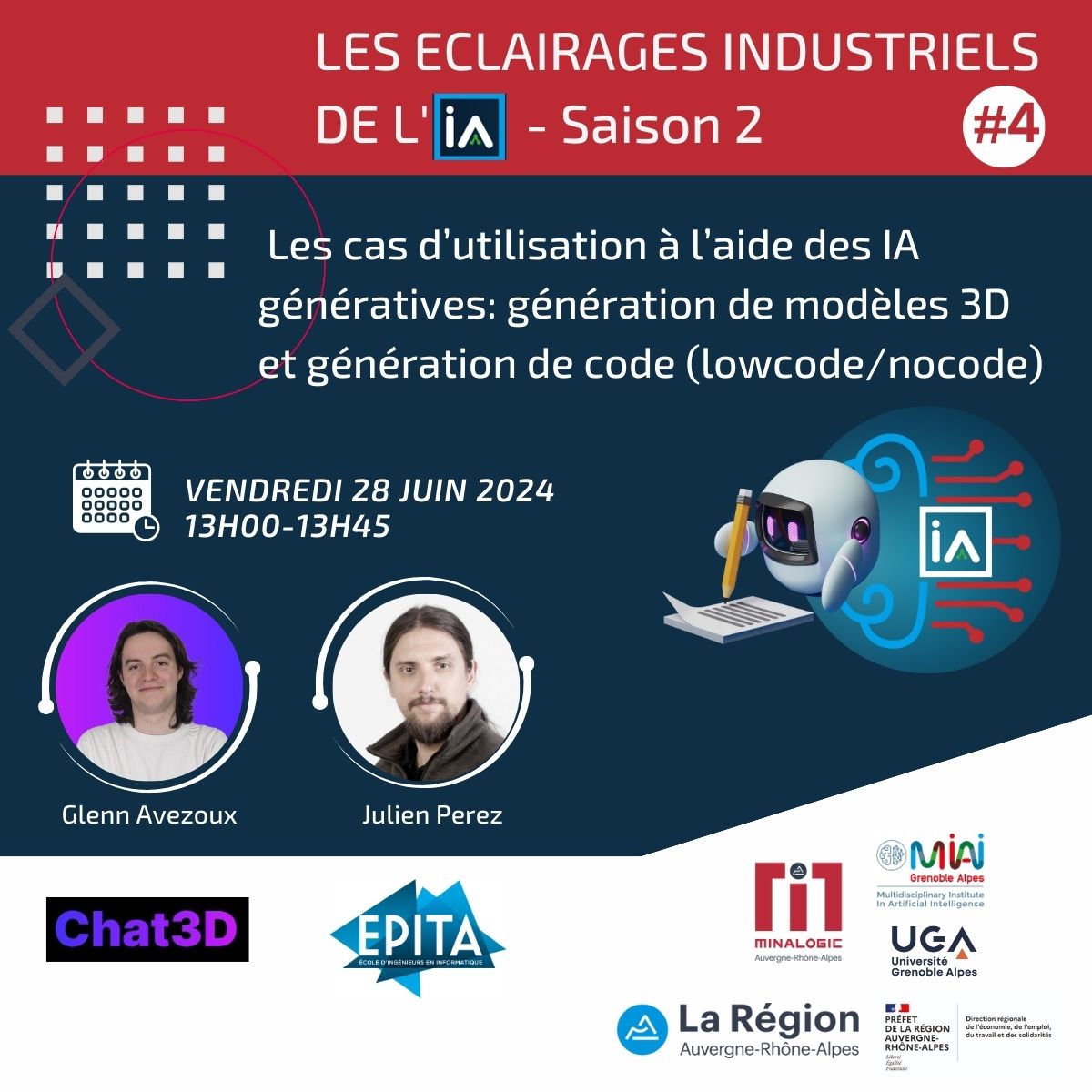Les cas d’utilisation à l’aide des IA génératives: génération de modèles 3D et génération de code (lowcode/nocode)

Pour ce webinaire, nous allons vous présenter 2 cas d'usage utilisant les IA génératives:
1/ Création 3D et IA Générative : Enjeux d'une nouvelle dimension
L'objectif de cette présentation est de familiariser un public novice avec le potentiel de l'intelligence artificielle générative pour la 3D. Nous commencerons par une vue d'ensemble des technologies et usages existants de l'IA générative, avant de détailler les différentes techniques de génération 3D disponibles aujourd'hui. Cette présentation vise à informer sur l'état de l'art de cette technologie et sur ses évolutions futures. Nous démontrerons comment l'IA générative pour la 3D est déjà opérationnelle et présente un potentiel disruptif significatif pour de nombreuses industries. Enfin, nous conclurons par une ouverture sur les limites actuelles de cette technologie et les perspectives de recherche future.
Intervenant
Glenn Avezoux, Co-fondateur et CTO chez Chat3D
2/ CodeLLMs: Opportunities, Challenges, and Recent Advances
This talk will propose an overview of the current research and opportunities of Code Language Language Models (CodeLLMs), an emerging area of research and development at the intersection of natural language processing and programming languages.
We will present the opportunities that CodeLLMs propose, such as their potential to advance automatic code comprehension, generation, and refactoring, as well as the challenges that remain to be addressed, including robustness, generalizability, alignment and evaluation metrics.
We will also highlight recent advances in this field, handle in my lab, with a particular focus on three areas of research.
First, we will discuss the intersection of formal verification and CodeLLMs, exploring how these models can be leveraged to benefit from formal specifications and allow for the development of verified software.
Second, we will examine the use of Retrieval-Augmented Generation (RAG) techniques with CodeLLMs, which can significantly enhance the quality and relevance of generated code by integrating retrieval mechanisms from a large code corpus.
Lastly, we will touch upon the application of CodeLLMs in vulnerability detection. By understanding and leveraging the capabilities of CodeLLMs, we can potentially automate the identification and mitigation of security vulnerabilities in software, thereby enhancing the overall resilience of our digital systems.
Intervenant
Julien Perez, Associate Professor
Laboratoire de Recherche de l'EPITA - AI Team
Revoir le webinaire
Updated on July 1, 2024


